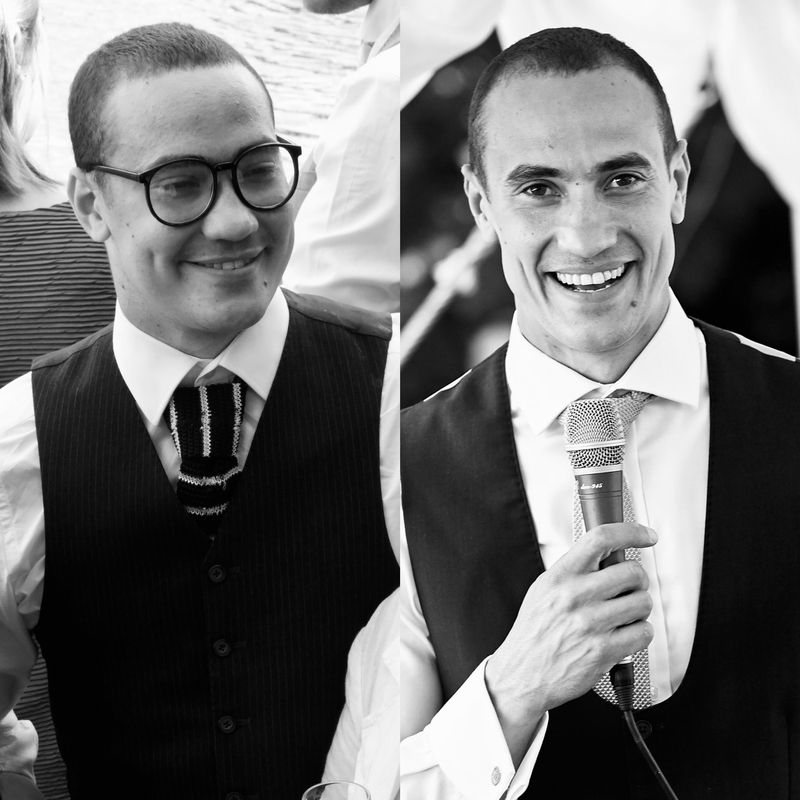This renowned clinical model was not intended to be ‘patient facing’, but we believe that arming people with this knowledge leads to real results.
The biopsychosocial model was initially proposed by the psychologist George Engel in the mid 1970’s. The concept is that our pain can be made up from a relationship of biological, psychological and social factors:
- Biological factors may involve our tissues, bones and nervous structure;
- Psychological factors may include our perceptions and beliefs of an injury (including our past experience);
- Social factors may include environmental factors like work stress and financial pressures.
The theory is that all pain is impacted by these three areas to varying degrees of intensity, dependent on the person and their circumstances.
To bring this to life, our founder and lead Physiotherapist, Stephen Davies, shares a personal experience:
When I was 30 years old, I was enjoying London life (a little too much); working long hours, training for a triathlon, not eating and sleeping properly and I had placed unnecessary financial stress on myself as I wanted to buy a house, set up my own physiotherapy clinic and pay for a trip to Vegas all in the same year. I had previously been diagnosed with Ulcerative colitis (an autoimmune condition like Crohns) but I thought it was mild and I had it under control.
Eventually my symptoms got so bad I was told that if I didn’t admit myself to the hospital, my colon was at risk of exploding and I would be in serious trouble. Even when I was told this, I stupidly said I would go into the clinic that week as I had a full list of patients.
I was so naive. I finally went to hospital and after seven days of being on the wards, my body was not responding to conventional treatment. The surgeon told me repeatedly that he could make all my pain go away by simply removing my colon and fitting me with a colostomy bag that I would have to live with for the rest of my life. We had this conversation on three occasions. I remember thinking, “that’s easy for you to say, you’ve accomplished most things in your life, I’m only 30, single and still have a lot of life to live”. Then my specialist doctor (who gave me the initial UC diagnosis the previous year) said to me, we’re trying everything from a medical point of view but I would like you to remove all the unnecessary stress in your life. Cancel everything as you have to give your body a fighting chance to get over this. I cancelled the triathlon, Glastonbury, stag do in Vegas and even tickets to go see Prince (my biggest regret as I wouldn’t get the chance again). After three weeks of being in hospital and ballooning in weight with all the medication I was taking, I walked out of the hospital with my body intact and a new outlook in life.
Going through that experience completely changed my perspective on how I should look after myself as well as treat my patients. Prior to this point I thought my body was invincible and I neglected the basics (I very much focused on the biological part of BPS model). I never took into consideration my stress levels, my financial burdens or unrealistic expectations. I’m fully aware that living that life did not cause my Ulcerative Colitis but it certainly made it worse and I believe that any injury or pathology can be made worse by poor stress management, poor sleep hygiene, poor diet and over or under exercising.
This shaped me as a person. The good news is, I’ve learnt to manage to my condition by following some basic principles and it no longer stops me from doing anything. I completed the triathlon, ran a 3:37 marathon, I own my house and private clinic, I went to Vegas for my own stag do and I’ve been five years in remission where I’m taking the minimum amount of medication someone with Ulcerative Colitis can take. This isn’t something I can forget about. It’s a constant journey that needs close monitoring which is why I want to share it with you as well.
The only cancelled item on the list which I still have to tick off is Glastonbury.
At Real Health London, we believe that every person is different and in order to effectively diagnose and treat a condition, we have to consider the full picture of contributing factors. We therefore offer longer initial appointments than the industry norm, allowing us to spend the time to get to know the person in front of us.
We then tailor our approach to suit the individual, we may talk to them about their understanding of their injury and why they think it has occurred. If appropriate, we may ask questions about their sleep, nutrition or stress levels. This approach also empowers the person as they understand the external factors that are contributing to their condition and have agency to change what is within their control.
Helping people to thrive is what drives us at Real Health London and this approach leads to real results.
